|
While buying auto insurance in the Portsmouth Ohio area with a clean driving record is very easy to do, drivers who have accidents, DUI’s, suspensions, multiple minor tickets or need an SR22 filing might have to look a little harder in order to find an affordable rate. But there are plenty of auto insurance companies out there that can help you find a low rate even with a bad driving record. There are several things you can do to help minimize the damage done to your auto insurance rate. There are also several things you can do to make the situation even worse! This article will help you understand what you need to know and need to avoid in order to keep from paying a higher rate. As an agent, I continue to see many of my customers make the same mistakes over and over again. I can warn them about these pitfalls and how they’re going to end up paying extra money in the long run, but they still don’t listen. This is especially a problem in the Portsmouth Ohio area, where a high concentration of violations per capita are written. So I've compiled a list of 10 Keys to Buying Auto Insurance in the Portsmouth Ohio area with a bad driving record. This will help you in finding a lower auto insurance rate. So let’s get started with those 10 keys. I have arranged them by category: Accidents: Key 1: Not-at-fault accidents. If you’ve been an accident in which you were not the at fault driver, be sure to save and keep handy any documentation that you have. This includes police reports, crash reports and anything showing where the other driver’s insurance company paid you for the accident. I have seen many times where a driver was not at-fault but yet their driving record indicated that they were at-fault on their motor vehicle report (MVR). This error is quite common. The state BMV tends to screw this up quite often. Many accidents simply get listed as accidents, without mentioning anything about fault. If it doesn’t specifically mention being not-at-fault in the accident, many times it will get categorized on your MVR as an at-fault. I see this happen to drivers all the time. However, many auto insurance companies will let you dispute that charge as long as you can provide documentation that shows you were not at fault. So if this applies to you, be sure to save that documentation for at least five years. Key 2: At-fault accidents. It is also a good idea to save documentation if you were at-fault in a very minor accident. Auto insurance companies all weigh at-fault accidents differently. While some companies treat all at-fault accidents the same, other companies will categorize and rate at-fault accidents by severity. For example: at-fault accidents in which there was only property damage and no injuries (such as a fender bender) will go a little easier than an accident in which a bodily injury claim was paid out. This is especially true if a claim paid out for property damage was less than $1000. DUI’s Key 3: If at all possible, don’t let your auto insurance drop following a DUI. I understand that in many cases you may have to drop your insurance because of suspensions. But many drivers will still be able to keep their auto insurance active in some cases. If you can keep your auto insurance active, it will go a long way in saving you money due to having prior insurance coverage. That’s because auto insurance companies give significant discounts to drivers with prior insurance versus drivers who don’t have prior insurance. Key 4: Don’t drive with your license suspended after you get a DUI! Most high risk auto insurance companies go very easy on DUI’S. Believe it or not, due to competition for market share, many high risk auto insurance companies will go easier on DUI’S than they do for minor tickets like speeding, stop sign and red light violations. As long as you follow the right steps in getting your license back, and not driving until then, things will probably be easier on you regarding auto insurance than you thought..... However, a lot of drivers will get caught driving under suspension shortly after their DUI. Once that happens, things go from bad to worse! It becomes nearly impossible to get an affordable rate. Key 5: Having your DUI reduced to a reckless operation charge will wreak havoc on your auto insurance rate! Like I mentioned before about auto insurance companies going easy on DUI’s, that is definitely not the case with a reckless operation ticket! As far as raising your auto insurance rate, the only thing worse than getting a reckless operation ticket is being at-fault in an accident. I understand that many of you may have to do this out of necessity to save your job. But be forewarned, it’s going to cost you quite a bit more on your auto insurance premium because a reckless operation violation gets dinged heavily, even by high risk companies. Other key points to know:
Key 6: Getting multiple violations on the same day. If you get more than one violation on the same day, most auto insurance companies will only count the most severe violation and let any other violations drop (or at least not be counted against you as far as your auto insurance premium). For example, if you get a DUI because you caused an auto accident, only the At-fault accident will be charged against you. Another example, if you get a DUI and also get a speeding ticket, only the DUI would affect your rate. The speeding ticket would be dropped because it happened on the same day. However, you need to keep an eye on this because there are still companies who will charge for everything. So if this applies to you, you may need to do some shopping around, if you notice that you're being penalized for more than one violation that occurred on the same day. Key 7: Shop around with independent insurance agents. Captive agents most likely cannot help you. A captive insurance agent is someone who only sells insurance for one company. An independent insurance agent carries many companies and can thus give you multiple quotes at once. It’s not that there’s anything bad about captive insurance agents. In fact there are many captive agents here in the Portsmouth area that do a great job, and they are professional people. But the problem is that the company they work for most likely doesn’t want your business. Companies who only hire captive agents tend to only want drivers with clean or almost clean driving records. Not to mention over half of them don’t offer SR22 filings. These are the type of companies that will either refuse to sell you a policy or offer you a policy with an enormous price just to get you to go away. Of all the auto insurance companies that go easy on drivers with bad driving records, almost all of them go through the independent agent channel. Plus shopping around with multiple companies at once is more efficient in finding the companies who will offer you the lowest rate. Key 8: When getting an auto insurance quote, be honest and accurate about what’s on your driving record. Insurance agents are like anyone else in that they hate being lied to. By not disclosing everything that’s on your driving record, you are simply wasting both your time and the agent's time. If you don’t know what’s on your driving record, you can get a copy of your motor vehicle report online by visiting the Ohio BMV web site. Remember that every company requires their agent to run an MVR report before they can sell a policy. So there’s no use trying to hide something on your driving record, because they’re going to find out. Key 9: Buying 6 month auto insurance policies vs. 12 month policies. Most auto insurance companies in Ohio only offer six month policies. But there are some companies that offer 12 month policies. There's really no significant difference between the two. But if you have your choice between one or the other, I recommend you go with the six month policy if you have dings on your driving record. Because sooner or later the time will come when that ding falls off of your record (usually after 3 years but some companies go back 5)…. But a ding won't officially fall off of your insurance score until the policy expires and is up for renewal. So with a 12 month policy, you may have to pay extra for a few more months than you normally would have to. . Key 10: Know your state filing status (SR22). I've had several people over the years that have bought auto insurance believing that they did not need an SR22 filing when in fact they did. If you need an SR22 filing, it has to be attached onto an auto insurance policy to do you any good as far as getting your license back. Unfortunately, many drivers don't discover this error until they get pulled over and find out their license is still suspended. If you don't know your filing status, you can look it up for free on the Ohio BMV website. Click on the unofficial driving abstract and you can pull that info up. It will tell you whether or not you need an SR22 filing, and if so, how long you need to carry it. Summary: As far as getting an affordable auto insurance rate, having a bad driving record is no longer the kiss of death that it once was. However, you have to be smart in knowing what to do and what not to do. The 10 keys I mentioned above are some of the most common mistakes I see people make. Keeping these 10 keys in mind will go a long way in saving you money on your auto insurance premium. Get an Auto Insurance Quote with Lyles Insurance Call me for a Quote Related Blog Articles: Video: SR22 Auto Insurance: Going from a DUI to license reinstatement Video: Basics of an Auto Insurance Policy SR22 Bond in the Portsmouth Ohio area: FAQ’s Recent changes to the Ohio BMV's Auto Insurance Random Selection Letter Program
1 Comment
What is a Named Operator's Auto Insurance policy? If you need auto insurance in Virginia, a named operator’s (AKA non owners) policy is a special type of auto insurance policy for drivers who do not own a vehicle. These policies are not intended to replace a regular auto insurance policy which puts coverage on a specific vehicle. But for those of you who do not have a vehicle, a named operator’s policy is the only way to get some type of auto insurance coverage without being added as a driver to someone’s existing regular insurance policy. Does a named operator’s auto insurance policy work for those who need state filings? Absolutely! In fact, that is what they’re most commonly used for. In Virginia, there are two types of filings. One filing is an SR22, the other is an FR44. If you need either of those two filings to get your license reinstated, a named operator’s policy will work fine for you. What’s the difference between a named operator policy and a regular auto insurance policy?
Let’s suppose I borrow my neighbor’s car, and run a red light causing an accident. What will a named operator policy cover me for in that scenario? Remember that the named operator policy is considered secondary coverage, regular auto insurance is the primary coverage. So in that case, your neighbor’s regular auto insurance policy will pay first. The car you wrecked will only be covered if your neighbor’s auto insurance policy includes collision coverage. While collision coverage is optional on a regular auto insurance policy, liability coverage is mandatory. So as long as your neighbor is carrying liability coverage on their vehicle as they should be, your named operator’s policy won’t pay anything unless the damages are higher than the liability coverage your neighbor is carrying. If your neighbor has let his insurance policy lapse, then your named operator policy will step in and pay up to the limits of liability coverage for the car you hit (but won’t cover the car you were driving). Does a named operator’s policy cover me driving my own vehicle?
Absolutely not! Nor will it cover you driving a vehicle owned by someone in your household. These policies are not intended to replace regular auto insurance. If you own a vehicle or have a vehicle registered in your name you have to carry regular auto insurance on it to be legal. What happens if I start a named operator’s auto policy and then buy a vehicle later on? In this case you need to call your agent and ask them to convert your named operator’s policy into a regular auto insurance policy. This is very easy and quick to do. It usually only takes a 5 minute phone call. But make sure you take care of that change before you drive off with a car you just bought. I need an FR44 filing but my auto insurance company does not offer state filings. Is it OK to have a regular auto insurance policy to cover my vehicle and a named operator’s policy to satisfy my FR44 filing? Yes, while this is perfectly fine to do, nine times out of ten it’s more expensive this way, having to pay for two separate auto insurance policies. It’s usually cheaper to find a regular auto insurance company who will write FR44 or SR22 filings and put them together on one policy. But I have seen exceptions to this, to where it made sense to carry two separate policies instead. Where’s the best place to buy a named operator auto insurance in Virginia? Your best bet is to get a quote through an independent agent, preferably one that specializes in high risk auto insurance. The companies that they carry are more likely to offer the lowest rate on named operator policies. They are also more SR22 or FR44 friendly than other companies, if that applies to you. Get a Named Operator auto insurance quote with Lyles Insurance. Get a regular auto insurance quote with Lyles Insurance. Call me for a Quote Related Blog Articles: Video: Basics of a Named Operator Policy Video: Named Operator Auto Insurance with an SR22 Filing Virginia FR44 Insurance Filing Requirements and Online Buying Guide Where can I find the cheapest Virginia FR44 Auto Insurance Filing with a DUI on my record? What is a Named Operator (aka non-owner) Auto Insurance Policy? 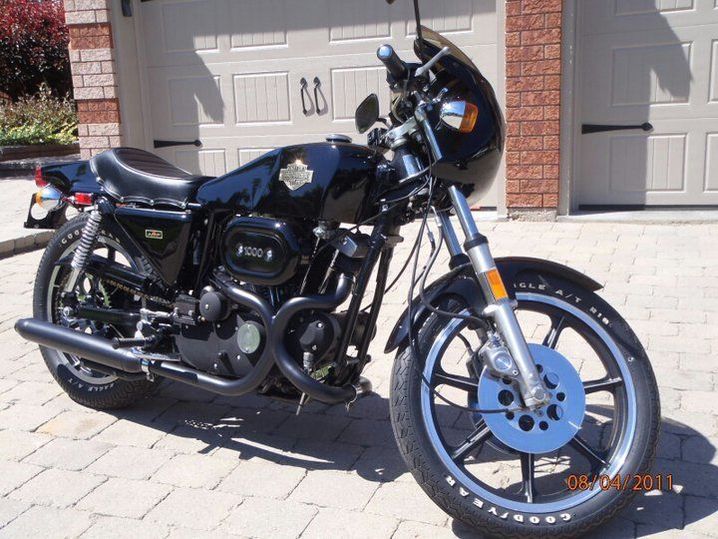 If you’re trying to make sense of Michigan’s motorcycle insurance laws, take a number! When it comes to motorcycle insurance, Michigan has the craziest laws of any state. This makes buying motorcycle insurance in Michigan very confusing. What makes the laws so crazy is the fact that the amount of coverage you have depends on what you crash into in an accident. It basically boils down to two options for motorcyclists in Michigan: Either pay a fortune for adequate medical coverage all the time or go without medical coverage and only have adequate coverage part of the time. As crazy as it may sound, that’s how Michigan motorcycle insurance laws work. Here’s a breakdown: Where Michigan Insurance laws are good for motorcyclists:
Where Michigan laws are bad for motorcyclists:
Protecting yourself without breaking the bank
Do yourself a big favor: Take Uninsured Motorist Bodily Injury Coverage. While this coverage is required in many states, it is optional in Michigan. As mentioned before, if you have an accident on your bike with a motor vehicle, your injuries will be automatically covered on that motor vehicles auto insurance policy. The problem is that Michigan has a very high rate of driver’s who are not legally insured as they should be. The national average of driver’s who are not carrying auto insurance liability coverage as they are supposed to be is about one in every six drivers. But in Michigan, because of the high auto insurance prices, that ratio is more like one in every four or five drivers. Uninsured motorist coverage does not cost as much as medical coverage does. And it is very well worth having because there are so many uninsured drivers on the road. ** Note: Remember that in selecting uninsured motorist coverage, you’re only allowed to carry as high of a level as you selected with liability coverage. So if you settle for Michigan State minimum liability coverage, then uninsured motorist coverage will only cover your injuries up to $20,000. Medical benefits coverage vs. medical payments coverage. You’ll have the choice of selecting one or the other if you want medical coverage. The only real difference between the two is that medical payments coverage stops after three years following an accident, as opposed to medical benefits which do not have time limits. Another difference is that medical benefits coverage is usually offered at much higher levels than medical payments coverage. Most companies won’t go any higher with medical payments coverage than $25,000. But many companies will go over $100,000 with medical benefits coverage. Dollar for dollar, medical payments coverage is much cheaper than medical benefits coverage. But again the both of these coverages are pricey. So you might have a tough decision to make. Satisfying Michigan’s no-helmet law. In order to legally drive without a helmet, you need to carry at least $20,000 in medical benefits coverage. $20,000 in medical payments coverage will not work. I know that sounds completely silly, but that’s how the law is written. Summary: I realize that it is very difficult to choose the right coverage for motorcycle insurance when you have crazy laws like this on the books. At least now you know what risks you face and you can decide for yourself if you can afford the above mentioned coverage. Get a Michigan Motorcycle Insurance Quote with Lyles Insurance Call me for a Quote Related Blog Articles: Video: Buyer's guide for buying motorcycle insurance Video: Progressive Motorcycle Insurance Where can I find Insurance on a Polaris RZR that is licensed for road use? When you compare the amount of coverage offered on a renters insurance policy to the low price that it costs for renters insurance in Ohio, you would think that buying renters insurance is a no-brainer….. right? But surprisingly, statistics show that’s not the case. In fact, roughly 2/3 of renters have no renters insurance coverage whatsoever. I want to share a couple scenarios with you to illustrate why it’s very important to have renters insurance: Fire scenario: Let’s suppose your apartment gets destroyed by a fire and all of your property gets destroyed. That includes furniture, electronics, clothing, kitchen ware, personal items and all other belongings…..
With renter’s insurance, all or most of that will be taken care of if you’re properly insured. Personal property coverage will replace all of your property as long as you’ve selected enough coverage. Loss of use coverage will also help you pay for lodging and food, which you are most likely going to need if you are displaced from your home. How much personal property coverage can I get? A good renter’s insurance policy will offer coverage as low as $10,000 and will offer up to $50,000. The amount of loss of use coverage offered is based on the amount of personal property coverage that you select. Loss of use coverage pays up to 20% of the amount of personal property coverage. For example, if you selected $10,000 in personal property coverage, loss of use coverage will be offered up to $2000. If you selected $20,000 in personal property coverage, loss of use coverage will be offered up to $4000, and so on and so on. Two very important notes about personal property coverage:
Scenario two: Injury to a visitor: What would happen if somebody were to come visit your apartment and slip and fall, injuring them self? Renters insurance has two components of coverage that could be used if you were held liable:
Additional optional coverage for Identity fraud: Identity fraud is becoming more and more common. A good renters insurance policy will offer you the option to select for ID fraud expense coverage. This add-on coverage will help you with up to $2500 for covering your expenses trying to correct the situation. Where should I look for renter’s insurance? The first place you should start is with the company you have your auto insurance coverage with. Some auto insurance companies also sell renter’s insurance and some don’t. If your auto insurance company happens to be one of those companies that sells renter’s insurance, you might get a big discount by bundling them together with the same company. And because auto insurance usually costs a lot more than renter’s insurance, the savings you get on your auto insurance policy by bundling can take out a huge chunk of your renter’s insurance premium. If the bundling option doesn’t apply to you, then your next best bet is to get a quote from an independent agent. That way, you can shop around for multiple renters insurance companies at once instead of shopping around one company that time. Summary: If you rent your home, I strongly suggest you take a look of renters insurance. The amount of coverage you have available to end a long way in the event of a catastrophe. And when you compare the coverage are getting to the very low cost of coverage, it becomes a no-brainer! Get an Ohio renters insurance quote with Lyles Insurance Call me for a Quote When it comes to RV/motor Home Insurance, there are different ways to set up a policy. Some people simply attach it to their auto insurance policy, if their company allows it. Others buy exclusive stand-alone insurance for their RV or motor home. But not all companies are the same as far as insurance coverage that they offer for RV’s. Many of you are either getting cheated out of coverage and/or are probably paying too much for the coverage you are getting. This is especially true for RV's written on an auto insurance policy. This article will help you understand what you need to know about having good coverage on your RV or motor home. I’ve come up with a checklist for you to see exactly what should be on a good a RV or motor home insurance policy. My advice would be to pull out your current policy and look at exactly what is covered and what isn’t. Make sure all the major coverages are there and that levels of coverage are adequate. Chances are that your RV policy doesn’t offer the great coverage like you thought it did. If your policy doesn’t stack up to the coverage offered on better RV insurance policies, it may be time to shop around for some better coverage. And if you haven’t shopped around with multiple companies before, you might be very surprised that upgrading coverage may cost about the same, if not less than what you were paying before. A good RV insurance policy should include all of the following: 1. Newer vehicles: Total Loss coverage and Replacement cost coverage are a must! – If you just bought a brand new RV, or bought a brand new RV recently (within one model year of the present), your vehicle qualifies for total loss replacement coverage. If your RV is less than two years old you also qualify for replacement cost coverage. Both of these pay well over and above how RVS are normally valued on an insurance policy, which is actual cash value basis. There is a huge difference between these ways of valuing your RV/ motor home. This is very important! If you own a new RV (or almost new), this is very well worth looking into. This is especially true if you financed your RV, as this helps prevent RV’s from becoming upside down on the loan due to depreciation. 2. Higher limits of coverage offered on your RV your motor home – Some of these toys get to be very expensive. A good policy will offer up to $500,000 coverage for motor homes and up to $300,000 for travel trailers. 3. Higher levels of liability coverage offered – This is where RV owners can get into trouble! This is especially true if you attached your RV to your auto insurance policy. Your RV is obviously much larger than your regular auto vehicles, and thus can cause much more damage. Make sure that you have adequate coverage on your RV to cover you in case you’re at fault for an accident. 4. Emergency vacation expense coverage – This coverage is very helpful if you were to get into an accident while on vacation. These expenses will help you cover costs for lodging, transportation, etc. when your RV becomes in-operable from damage. A good policy will offer this coverage, but many companies don’t. 5. Full Timer’s Campsite package – This coverage is very important to have if you use your motor home as your residence. This gives you additional coverage similar to what you would see on a homeowners insurance policy. The most important part of this package is additional liability coverage. Almost any motor home insurance policy offers liability coverage, but it only applies when you’re driving the RV. But if you’re using your RV as a residence, what happens if someone gets injured while visiting? There is no liability coverage for this type of claim unless you have this full timer’s campsite package.
6. Accessory coverage – I don’t know anyone who owns a motor home that hasn’t added the least some accessories to it. A good motor home policy offers free coverage for accessories up to a limit, and also offers higher limits if you need at a very affordable price. 7. Personal property coverage – a good RV Insurance policy will also offer coverage for your personal property. The amount of coverage offered will vary from one company to the next. But a lousy RV policy will offer personal property coverage at all. 8. Roadside assistance coverage – Have you ever had to pay a tow bill on an RV? The policy terms and coverage varies greatly from one company to the next with roadside assistance coverage. This is even true with some of the better RV Insurance companies. My advice is to read through what is covered if you select roadside assistance, and then compare that to the price. You can decide for yourself whether or not it’s worth it. But more often than not, it’s usually a good idea to have it because the price is usually very low. I’m sure that of all the eight points mentioned above, not all of them apply to you. However, it will give you a very good idea of what to look for in an RV Insurance policy. Note: I’m sure that you have noticed that I have used the terms RV and motor home interchangeably. That’s because the companies I carry insure a broad range of different types of Motor Homes that can be insured. This includes:
However, there are some types of Motor Homes that I cannot insure. These include:
Summary: If you compare the above checklist to your current RV policy, you might be very surprised at what level your policy offers. If that’s the case, then it’s time for you to shop around! While it also may surprise you is that you can get a better policy was much better coverage for about the same amount premium if not less. This is especially true for those of you who have attached you’re a RV onto an auto insurance policy (because you’ve probably done very little shopping around by setting up that way, and shopping around is the T in finding the best rate). Get an RV/ Motor Home insurance quote with Lyles Insurance Call me for a Quote Indiana is one of the very few states that have multiple types of auto insurance filings. While an SR22 filing is very common to many states, the SR50 filing is unique to Indiana. That’s why you’re not able to find as much information out there regarding SR50 filings. While the SR50 and the SR22 filing are very similar in many ways, there are some key differences between the two. This article will help you understand both types of filings, and also show you how to attach either filing to an auto insurance policy. For many drivers, this is usually the last step a driver needs to complete in order to get their drivers license reinstated. Understanding what an auto insurance state filing does A state filing that is attached to an auto insurance policy does not change or alter your auto insurance policy in any way. It is simply an attachment that requires the auto insurance company to notify the Indiana BMV. It lets the Indiana DMV know that you have bought an active auto insurance policy that has at least Indiana State minimum liability auto insurance coverage. In the case of an SR22 filing, it also lets the Indiana BMV know that you’re keeping this coverage active. What the SR50 and the SR22 state filings have in common:
Where the SR50 and the SR22 state filings are different:
The substitution factor This is very important to understand. For those of you who need the SR50, the substitution factor will also be critical as far as your ability to find the lowest rate. Here’s how it works:
The main reason for substituting the SR22 for the SR50 is competition. Even though many people still need them, Indiana is slowly phasing out the SR50 filings, and will soon just have SR22’s. Because of this, very few auto insurance companies handle SR50 filings anymore. Most of them have switched to just offering the SR22 because they know it works for either one. If you need an SR50 filing don’t be afraid to go with the SR22. Otherwise, you’ll be severely limiting yourself to companies that may and probably offer lower rates. Also, if you just need the SR50, don’t worry about the higher standard that the SR22 requires. You won’t be held to the higher standard that drivers requiring SR22 filings are held to. So don’t let that part bother you. How to set up an SR50 or SR22 filing with your Auto Insurance: It is very important to set this filing up with the right type of policy. And to do so is very simple:
Is it ok to carry two active auto insurance policies; a regular auto insurance policy to cover my vehicle, and a named operator policy to satisfy my SR50/SR22 requirement? Yes, this is perfectly fine to do. In fact many people do this because their current auto insurance company does not write SR50 or SR22 filings (or charge a fortune to do so). However, for the vast majority of people, this is the more expensive route to go because you’re paying for two separate policies instead of combining both together into one policy. The rare exceptions are usually people who are homeowners that have excellent credit and have their homeowners and auto insurance policies bundled together. For just about anyone else, it’s usually comes out cheaper to combine everything on to one policy. Finding the best rate Regardless of whether you need an SR50 or an SR22 filing, or whether you need regular auto insurance versus a named operator policy, the best place to find the lowest rate is the same…. Your best chance is to get a quote with an independent agent that specializes in high risk auto insurance. That way, an agent can do the shopping around for you with several companies who are SR50/SR22 friendly while weeding out the companies that aren't. This is the most efficient way to find the best rate for what you need. Get an auto insurance quote with Lyles Insurance Get a named operator quote with Lyles Insurance Call me for a Quote Related Blog Articles: Video: How SR22 State Filings work with Auto Insurance Video: Finding Affordable Auto Insurance with a DUI Video: Buyer's Guide: Indiana SR50 Auto Insurance Indiana Named Operator Auto Insurance Policy: Key Points to Know What's the difference between an Indiana SR50 and an SR22 auto insurance filing? The difference between an Indiana SR50 and an SR22 auto insurance filing? In Ohio, there's a unique term that is commonly used regarding auto insurance that you won't hear in any other state. That is the term “SR22 bond”. It is unique to Ohio because Ohio is the only state that has this type of bond that the term refers to. As common as the term is, an Ohio SR22 bond is actually incorrect. That’s because there's no such thing as an SR22 bond. But when you say the term, agents know exactly what you mean. This article will help clear the confusion so that you understand exactly what you need to know if you need to file an SR22 attachment with the Ohio BMV. The incorrect term “SR22 bond” derives from two different things. To understand the difference let's look at each one: Bond
SR22
The proper way to set up an SR22 filing
This is very simple.
*** Note: There are some drivers who own vehicles but choose to take out a financial responsibility bond and attach the SR22 filing to it, rather than attaching the SR22 filing to a regular auto insurance policy to save money. Although this is legal to do, it’s really not wise to insure yourself this way if you own a vehicle. Insuring your own vehicle with just a financial responsibility bond is very lousy coverage! The few dollars you save is not worth the coverage you sacrifice. There are major downsides to insuring your own vehicle with a Financial Responsibility Bond:
Is it OK to carry two separate active policies, a regular auto insurance policy to insure my vehicle, and a financial responsibility bond to satisfy my SR22 requirement? Yes. This is perfectly fine to do. However, nine times out of 10 this is the more expensive way to handle the problem. More often than not, having a regular auto insurance policy with an SR22 attachment together on one policy comes out cheaper for the vast majority of people. However, there are a few rare exceptions where it makes sense, and comes up cheaper to carry two separate policies. This is especially true for people who own their own home, have a good driving record and a good credit record. But for just about anyone else, it’s normally cheaper to carry everything on one policy. Finding the best rate. Not all auto insurance companies will file an SR22 filing. There are other companies who will file an SR22, but will charge you a fortune to do so. That's why it's important to find the right auto insurance companies that are SR22 friendly. The best way to shop around for any type of auto insurance that needs an SR22 filing is to simply go through an independent insurance agent who specializes in high risk insurance. These agents have several companies that go easy on drivers who need SR22 filings. Independent agents will be happy to do the shopping around for you. They can set up coverage that is right for you and find the company with the lowest price for the coverage levels you need. Just because you need an SR22 doesn’t mean you need to pay a fortune! Get an SR22 Auto Insurance quote with Lyles Insurance Get an SR22 FR Bond quote with Lyles Insurance Call me for a Quote Related Blog Articles: Video: When Does my Ohio SR22 Auto Insurance Requirement End? SR22 Auto Insurance in the Portsmouth Ohio Area: Are you setting up your policy correctly? What you need to know before you buy an Ohio SR22 Bond Online How much does SR22 bond insurance cost in Ohio? Differences Between an Ohio Financial Responsibility Bond and a Named Operator Auto Insurance Policy 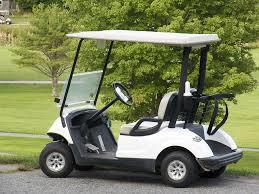 Many small towns are passing laws that allow golf carts to be registered for road use. However, many golf cart insurance companies will not insure a golf cart once it becomes registered for road use. For some people, this has become quite frustrating. Many people have had to cancel their golf cart insurance because the company would no longer insure it. The good news is you can still get great coverage on golf cart insurance at a great rate. You just need to look a little harder, or find an agent who has golf cart insurance companies that don’t have a problem with road use registration. For those of you who live in Ohio, Indiana, Michigan, Pennsylvania, Virginia or West Virginia, I will certainly be happy to help you with that. Qualifications are fairly easy.
Other tips about golf cart insurance
Get a Golf Cart Insurance Quote with Lyles Insurance Call me for a quote Related Blog Articles: Video: Tips for buying Golf Cart Insurance Video: Progressive Golf Cart Insurance Video: Basics of a Golf Cart Insurance Policy Golf Cart Insurance in Ohio: Don’t get cheated out of great coverage and pay the same price! Golf cart insurance: 6 Key things you need to know before buying |
Author
Dan Lyles is an Independent Insurance Agent serving Ohio, Indiana, Michigan, Pennsylvania, Virginia and West Virginia.. Archives
March 2021
Categories
All
|



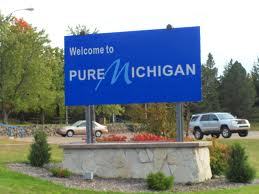
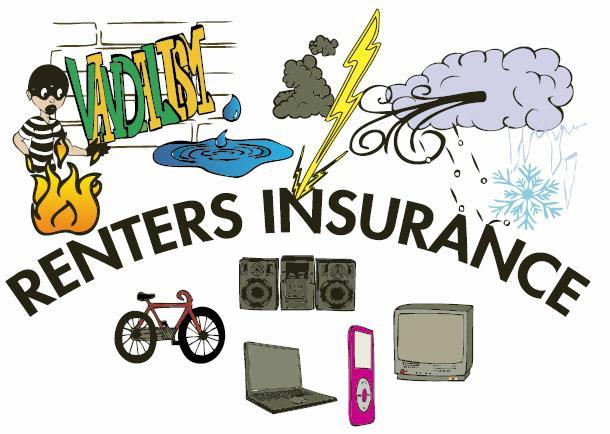
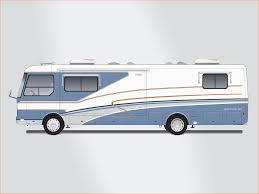
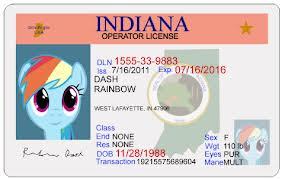
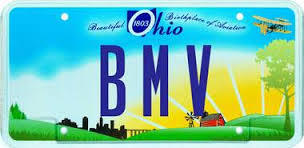

 RSS Feed
RSS Feed